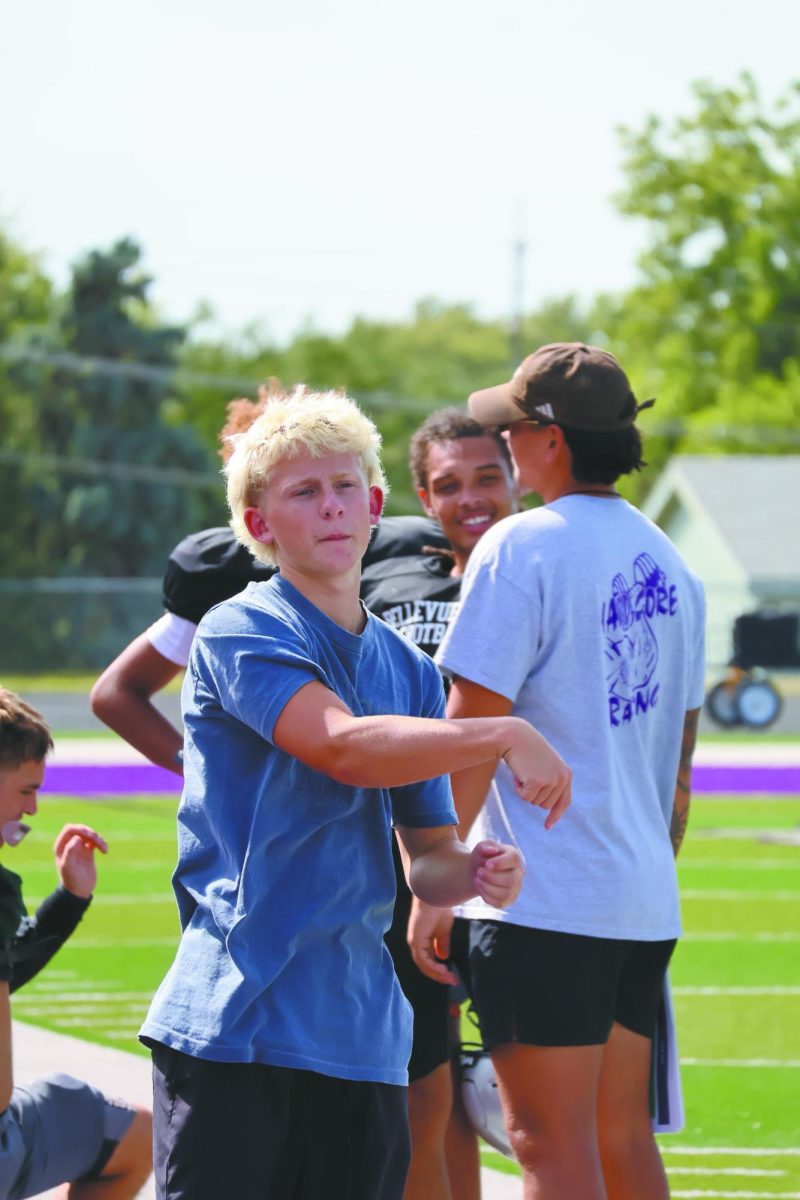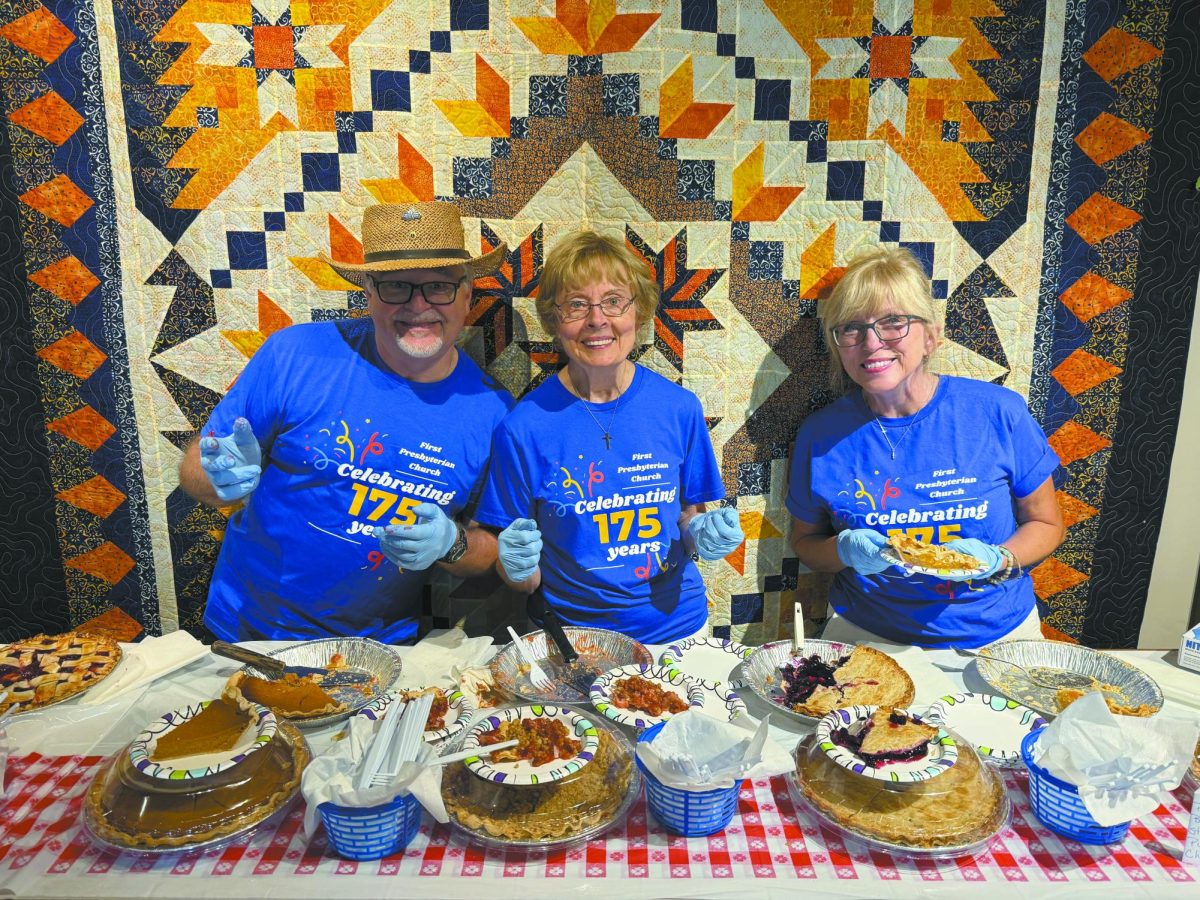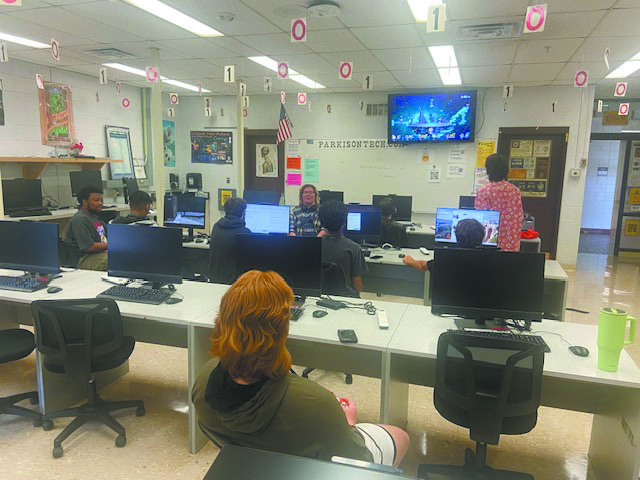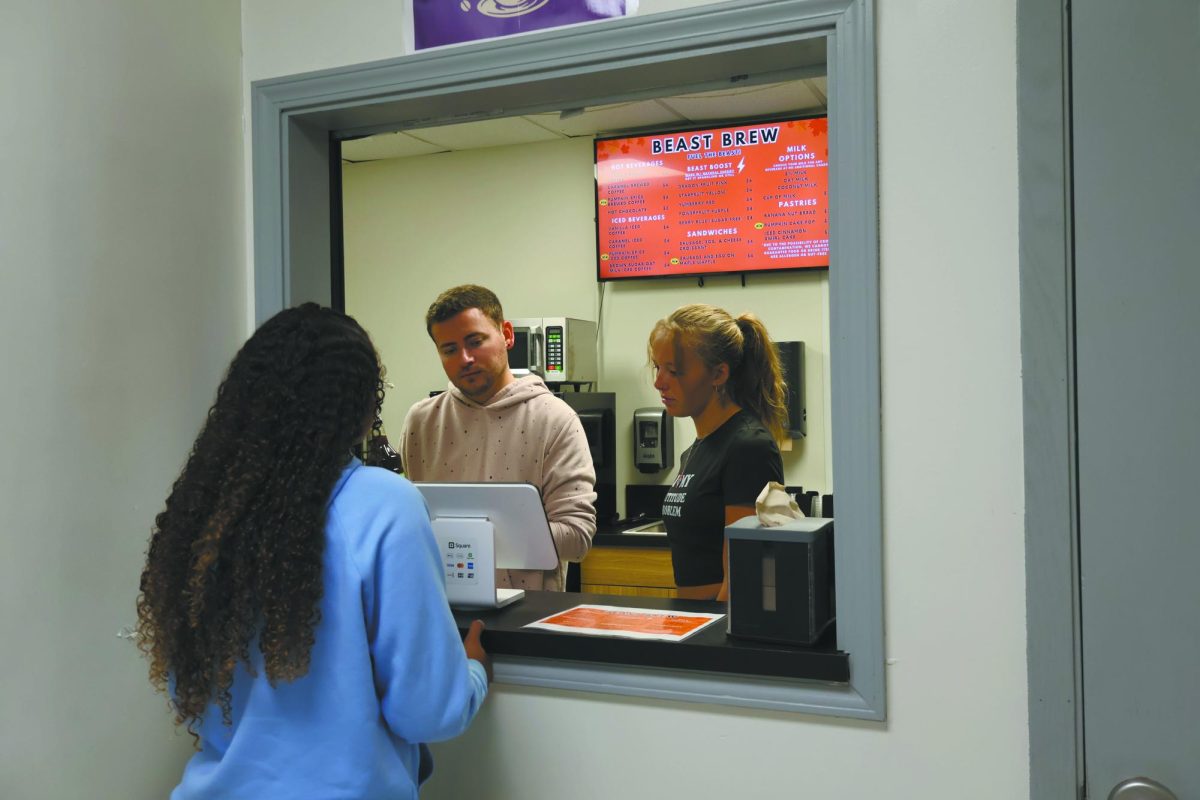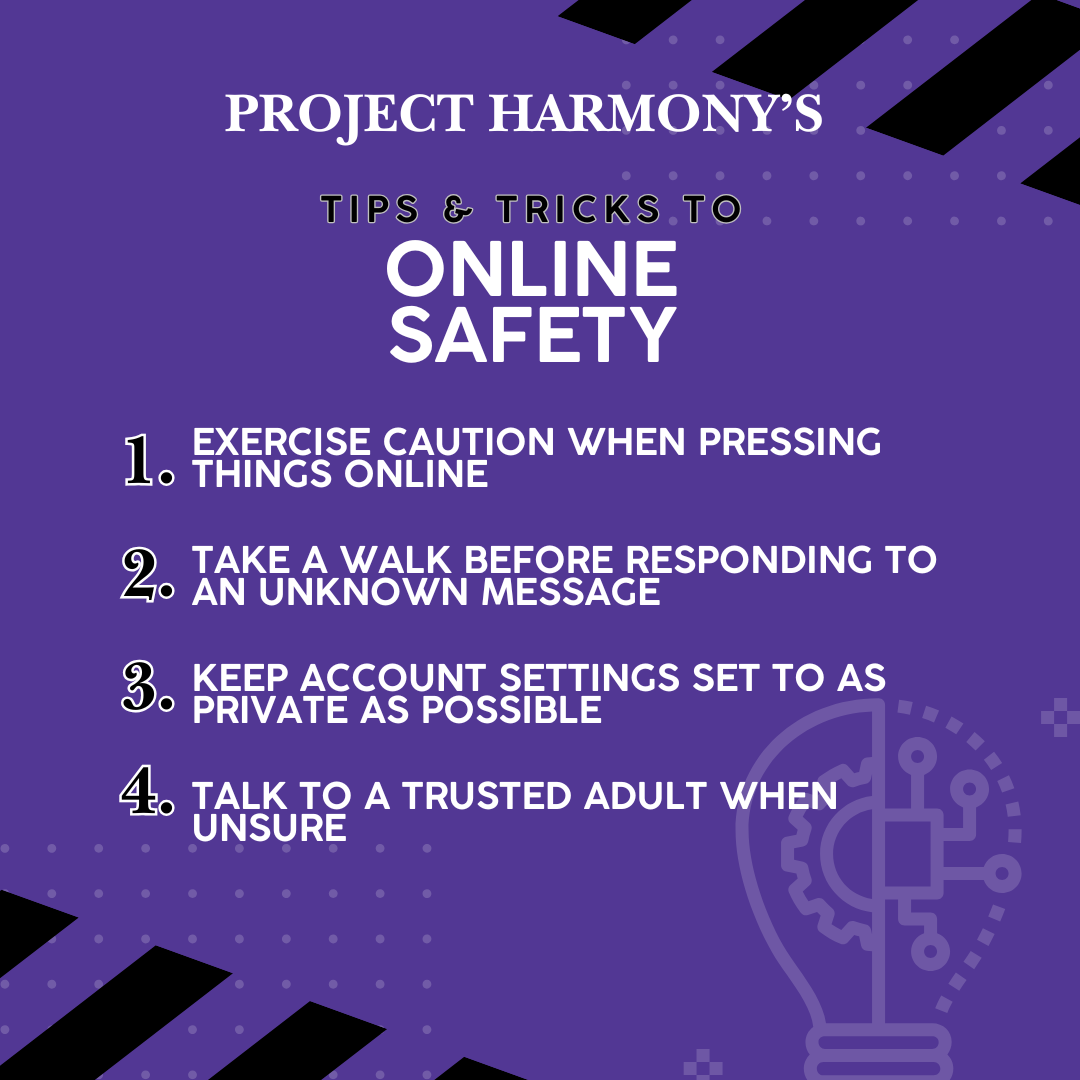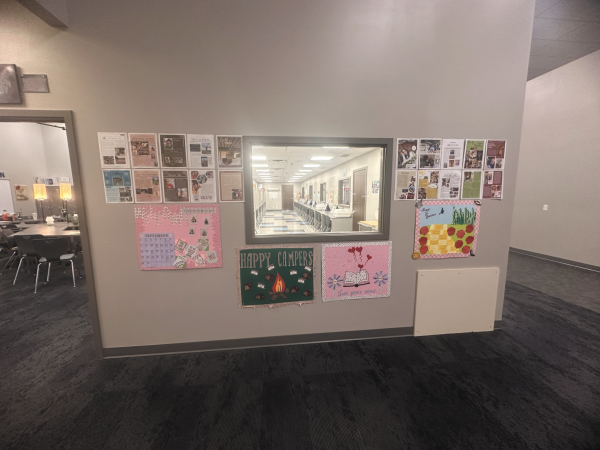
Calm down. Chill out.
Those were the words that junior Isa Jaskot, who wants to become a neurosurgeon, repeated to herself as she stepped off the bus onto the University of Nebraska Medical Center’s campus. After having been accepted into the highly competitive program, with high schoolers from across the Omaha area vying for a spot, she felt a sense of nervousness. And yet, sprinkled between those lines, was a sparkle of excitement.
“It was nerve wracking because I wasn’t sure if I’d be able to fit in, if I’d find other people that were like me, that stuff,” Jaskot said. “But I was also excited because it’s one of those things that you just, you feel proud that you’re able to say ‘I got into this.’”
Years ago, Jaskot and her mom sat on the couch of their living room, watching an, according to her, “nerdy medical show” on Netflix.
“They had a neurosurgeon, and he was also an immigrant like my Mom, and she was like ‘that could be you,’ and now I’m like, ‘I am going to be that person!’” Jaskot said. “I remember I was 7, I got my first microscope, and at 11 I got my first college textbooks on Diagnostic Parasitology. It was something that once I discovered it, the study of the brain, and performing surgery on it, I just knew I wanted to do it.”
She stepped into her classroom – which, being a lecture hall, felt more like an auditorium. Instantly catching her eyes were the microphones meticulously placed at the students’ respective seats, right next to their name tents. On those tents were, of course, their names and the school they came from. In Jaskot’s case, her’s read “Isabella Jaskot” with the words “Bellevue East High School” right below it.
“It was really cool and strange, because this is the kind of stuff that you’d see in a college,” Jaskot said. “I couldn’t believe I was actually doing this, like, ‘wow, I’m in a college class.’ And the microphones were crazy to me because in high school, you don’t have microphones. The teacher can hear you; you aren’t far away in this giant auditorium taking notes.”
Jaskot isn’t the only student attending a college preparation program. Just seven and a half miles away, only a bit before, was senior Sage Frazier’s first day at the Frank Kumor Center’s Education Academy.
Frazier was in 6th grade when their science teacher gave them their very first sketchbook. Today, they want to become an art teacher.
“I chose the Education Academy because it’s always been a thing just going throughout school of teachers being my safe space, especially with home life being a little rocky and things,” Frazier said.
Stepping into the room, Frazier instantly noticed the tall, gray ceilings and walls that were plastered with vibrant and inviting decorations. In the center of the room was a large table formed by groups of smaller tables, lined with soft seating.
“I felt welcomed and honestly at home when I first walked in because they guided me around,” Frazier said. “My classroom is taught by Ms. Armstrong, and we got to have an amazing conversation; it wasn’t just ‘hi, that’s my name,’ we actually conversed. She made the classroom so warm and welcoming— she had coffee, goldfish, crackers, apples, and other things for us, too.”
Just like Frazier, junior Gabby Shuster also felt welcomed as she walked into the Criminal Justice building at Metro. Any nervousness she felt wasn’t necessarily from starting her first day, but rather simply if she’d be able to keep up.
“Walking in, I knew this was something I really wanted and worked for,” Shuster said.
Shuster always enjoyed criminal cases and watching true crime documentaries, and continues to be inspired by her uncle, a police and SWAT officer, each day.
“I want to become a lawyer,” Shuster said. “I want to be able to protect people my way, and instead of putting me in harm’s way, I’ll just be there putting people behind bars or setting people free. It’s giving them that chance to explain themselves, what happened, why, and whatnot.”
Shuster’s classroom, unlike Jaskot’s lecture hall with microphones and Frazier’s room with high ceilings, was just a regular classroom, seating only around 20 people. Nevertheless, all students were treated as young adults instead of children. Her professor, a former police officer, instantly jumped into the curriculum.
“No ice breakers, no nothing. It was laptops out, books open, talking,” Shuster said.
Nearly everyone has a story of how they discovered their passion; maybe it’s just something they were born into, or an epiphany they had on a random summer morning. All three students, Jaskot, Frazier, and Shuster, discovered their callings differently.
Students are actively encouraged to step out of their comfort zone and give college prep programs a shot. UNMC, the Career Academy at Metro, or the programs at Frank Kumor are all convenient options for students.
“I would say if you want to do law, or any type of thing in Criminal Justice, whether that’s be a police officer or in the mayor’s council, take this [program],” Shuster said. “You aren’t just learning about what you’re trying to become, but what you’re learning directly affects your community.”
There is ample opportunity for direct community involvement as well. For example, if a student chooses to join the Education Academy, they will be given the opportunity to shadow a professional teacher at a real school building. The academy and its staff continue to work to provide a safe space for students.
“If you want to be a teacher, if that’s something for you, go for it,” Frazier said. “To be seen and recognized as an individual is a big thing in that academy, and that’s what’s so refreshing. It’s like a breath of fresh air.”
While Jaskot, Frazier, and Shuster may have all discovered what’s right for them, not everyone has. Ask any other teen what they want to do for the rest of their lives, and more than likely, they will all give you the same answer.
“I don’t know yet.” In fact, there’s numbers to back that up.
According to North Central College, “it’s estimated that 20 to 50 percent of students enter college undecided, and an estimated 75 percent of students change their major at least once.” Nevertheless, teens are all still at the very beginning of their lives. The human brain doesn’t even fully develop until the age of 25.
“I think the only reason I know what I want to do is because I have that drive, ‘I want to do this,’ but I feel like some kids don’t need to know yet,” Shuster said. “Some kids just need to go on a path and explore a bit, while others might just be ready to get a business degree and go about their lives. Take it at your own pace. You have your whole life.”


![Inspire. The Education Academy students discuss with each other the assignment they were just given. Senior Sage Frazier said they like the collaborative nature of the Education Academy. “[Ms. Armstrong] always tried to give us the opportunity to talk to everyone,” Frazier said. “So, talking with everybody and everything, she [Ms. Armstrong] also opens up a lot of chances for communication like, ‘what did I do for today, and what do I need to improve for tomorrow?’ And she always asks that at the end of every class and she opens up every class with a journal prompt that she replies to everyday. It’s such a cool concept.”](https://beaststudentmedia.org/wp-content/uploads/2024/09/group-work-shot-web-version-1200x900.png)
